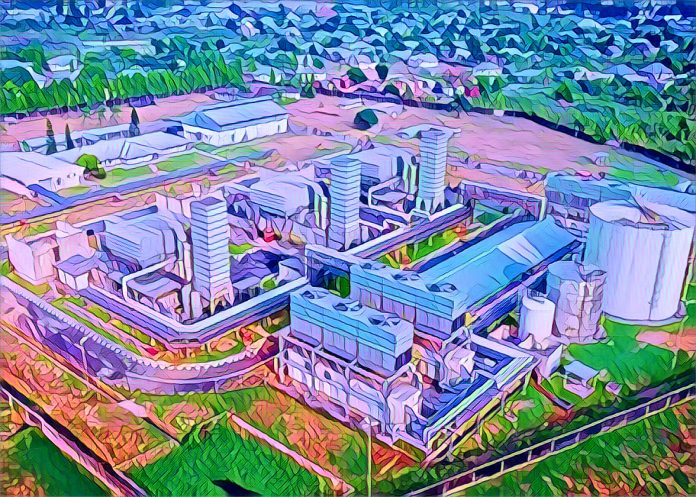Nigeria’s Abia state has marked a significant milestone in its development agenda with the commissioning of an integrated energy project by Geometric Power Aba Limited. This project, a 141MW power generation and distribution facility with the potential to scale up to 188MW, is set to illuminate nine local governments within the state’s commercial nucleus, Aba. This initiative not only represents a leap forward in addressing the perennial power challenges in the region but also serves as a beacon of innovation and self-sufficiency in the Nigerian power sector.
Abia, one of the five southeastern states of Nigeria, is a bustling hub of over four million people, known for its vibrant commerce and industry. The Geometric Integrated Power Project stands out as Nigeria’s first fully vertically integrated electricity project, encompassing embedded generation and distribution capabilities. This pioneering approach enables the facility to directly cater to the local community’s electricity needs while contributing surplus power to Nigeria’s national grid, ensuring a more reliable power supply that has long been a challenge across the country.
The heart of this project lies in its state-of-the-art infrastructure, featuring three GE LM6000 gas turbines each capable of producing up to 47MW of power. The facility is bolstered by a 27km gas pipeline, ensuring a steady fuel supply, alongside three rehabilitated and five newly constructed substations. Furthermore, the project includes an expansive network of 140km of 33kV/11kV lines, utilizing fibre optic cables for efficient data communication, setting a new standard for power distribution in the region.
Governor Alex Otti, in his remarks, hailed the Geometric Integrated Power Project as the result of two decades of visionary leadership and unwavering dedication by Prof Barth Nnaji and his team at Geometric Power Aba Limited. The project’s inauguration also coincided with the commissioning of three key roads in Aba, namely Queens Street, Jubilee Road, and Umuoba Road, further testament to the project’s broader impact on the city’s infrastructure and quality of life.
Describing the project as a catalyst for economic and social transformation, Governor Otti emphasized its potential to boost the efficiency and competitiveness of local industries, create job opportunities for the youth, and significantly improve living standards within Abia state and beyond. Nigeria’s Vice President Kashim Shettima, present at the event, officially commissioned the project, underscoring its national significance.
Funding for this landmark project was secured through a $50 million term loan facility from Afreximbank in 2021, aimed at supporting the completion of the generation and distribution infrastructure, the gas supply pipeline, and the project’s operational commencement. This financial backing is a clear indication of the confidence in the project’s capacity to drive industrial growth and economic prosperity in the region.
Located in one of West Africa’s most industrious areas, the Aba metropolis is renowned for its dynamic small-scale industries, particularly in leather goods, fabrics, and crafts. The Aba Integrated Power Project (IPP) is expected to catalyze industrialization, enhance the productivity of small and medium-scale enterprises, and bolster the local manufacturing sector.
Geometric Power estimates that the operational phase of the project will generate more than 370,000 direct and indirect jobs, marking a significant stride towards economic empowerment and sustainability in the region. This initiative not only exemplifies a successful public-private partnership model but also sets a benchmark for integrated power solutions across Nigeria and the African continent.
In essence, the Geometric Integrated Power Project in Abia state is more than just an energy project; it is a transformative initiative poised to reshape the socio-economic landscape of the region. By ensuring a reliable power supply, fostering industrial growth, and creating vast employment opportunities, the project aligns with Nigeria’s broader goals of economic diversification and sustainable development. As this project moves from inception to full-scale operation, it promises to light up not just homes and businesses in Abia but also spark hope for a brighter, more prosperous future for the entire region.



